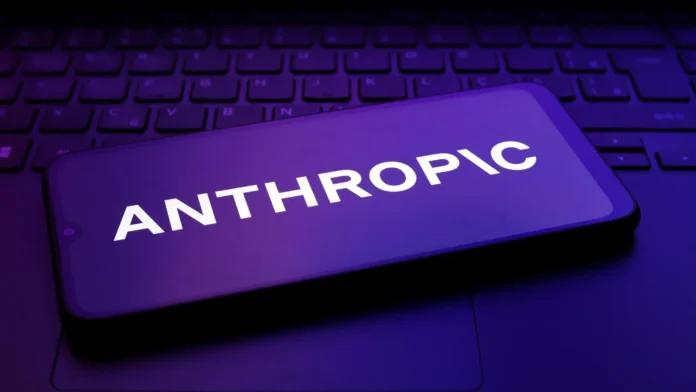
USA HERALD (August 27, 2025) — In a move that could reshape how artificial intelligence companies handle copyrighted content, Anthropic has reached a settlement agreement with a class of authors who accused the AI developer of illegally harvesting their books to train its Claude language model.
The deal, disclosed in twin court filings Tuesday across the Northern District of California and the Ninth Circuit, brings an unexpected conclusion to litigation that had exposed the messy intersection of copyright law and machine learning. Both courts agreed to pause proceedings while the parties finalize terms, with the lower court formally staying the case.
Settlement details remain under wraps, but court documents indicate the parties expect to file a motion seeking judicial approval by early September. The timeline suggests both sides found compelling reasons to avoid a December trial that promised to test untested legal waters around AI training practices.
Case Intel
- This settlement could establish precedent for how AI companies compensate content creators whose work trains their systems
- Judge William Alsup had called Anthropic’s book downloading from piracy sites legally indefensible, even while ruling AI training itself was transformative fair use
- The parties face a September deadline to present their deal for court approval, with broader industry implications hanging in the balance
The litigation had taken an unusual trajectory under U.S. District Judge William Alsup, who delivered a split ruling in June that simultaneously vindicated and condemned Anthropic’s approach. Alsup found Claude’s language capabilities “spectacularly” transformative, granting the company broad fair use protection for using copyrighted material in AI training.
But the judge drew a sharp legal line when it came to Anthropic’s methods. The company had allegedly downloaded millions of books from websites notorious for piracy to build what Alsup characterized as “a central, general purpose library” separate from the training data itself. That distinction, the judge ruled, stripped away fair use protections and demanded a jury trial.
The case dynamics shifted further in July when Alsup certified the author class, noting it would be “straightforward”for plaintiffs to prove Anthropic had “pirated millions of books” to accelerate Claude’s development. With class certification approved and a December trial date looming, Anthropic found itself facing potentially massive damages across thousands of allegedly infringed works.
The settlement arrives at a crucial procedural moment that illuminates the legal complexity surrounding AI training. Anthropic faced a bifurcated legal landscape where the same conduct—using copyrighted books to train Claude—received different treatment depending on the specific use.
Under the fair use doctrine’s four-factor test, courts weigh the purpose of use, nature of the work, amount used, and market impact. Judge Alsup’s ruling established that AI training itself likely qualifies as transformative fair use, similar to how search engines can index copyrighted content. But downloading complete works from piracy sites for library creation falls outside those protections, creating potential liability under the Copyright Act’s statutory damages framework.
The class certification added substantial leverage for plaintiffs, allowing them to aggregate claims across potentially thousands of works. Under federal copyright law, successful plaintiffs can recover actual damages or statutory awards ranging from $750 to $150,000 per work for willful infringement—numbers that could reach astronomical levels in a class action context.
Anthropic’s recent emergency stay motion with the Ninth Circuit, filed after Alsup denied a trial postponement, signaled the company’s urgent desire to avoid December proceedings. The settlement announcement just days later suggests the appeals court pressure may have accelerated negotiations.
Recent emergency filings show Anthropic had been simultaneously fighting on multiple fronts, challenging both Alsup’s fair use ruling and his class certification decision at the appellate level. The company’s legal team, spanning three major firms, reflects the high stakes involved for the broader AI industry.
“This historic settlement will benefit all class members,” said Justin A. Nelson of Susman Godfrey LLP, who represents the authors. The statement’s emphasis on “historic” nature hints at terms that could influence future AI development practices across the industry.
Anthropic’s legal representatives from Cooley LLP, Morrison Foerster LLP, and Arnold & Porter Kaye Scholer LLP did not respond to requests for comment Tuesday.
The timing proves significant for the AI industry, which has faced mounting legal challenges over training data practices. While companies like OpenAI and Meta battle similar copyright claims, this settlement could establish a roadmap for resolving such disputes without prolonged litigation.
The broader legal questions around AI training remain unsettled, but this resolution suggests both sides recognized the risks of letting a jury decide damages in largely uncharted legal territory. For authors, the settlement offers concrete compensation rather than uncertain trial outcomes. For Anthropic, it eliminates the prospect of potentially crippling statutory damages across a certified class.
Court watchers will focus on the September approval proceedings, which could reveal settlement terms that influence how other AI companies approach content licensing and training data acquisition going forward.
On appeal, the matter is Bartz et al. v. Anthropic PBC, No. 25-4843, before the U.S. Court of Appeals for the Ninth Circuit.
In the trial court, the companion case is Bartz et al. v. Anthropic PBC, No. 3:24-cv-05417, in the U.S. District Court for the Northern District of California.


